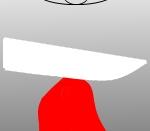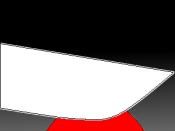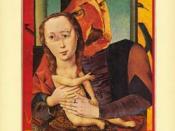In the olden days, religion and politics went hand in hand. The church either ran
the land or had a strangle hold on the people. If the church thought there was one way to
do something, one had to do as the church requested or suffer great penalty. To go
against the church was to go against God, and that meant death. The king was supposed
to be chosen by God to rule the people in the way he commanded. The king was the
closest thing to God on earth. Monarchs generally ruled hand in hand with the church.
As the monarchy's rein started to come to an end, the church's tight grip on the citizens
slowly started to loosen. With the implication of democracy, the church lost all real
power to make laws and actually govern the people. The church still held power over
peoples' morals, but without the monarchy's to enforce it the church's found their power
decreasing. In Margaret Atwood's The Handmaid's Tale, the government and the church
are interchangeable. The government is what used to be called the church, they have
come together to become one unit of power. The power of a modern day government
with all the knowledge and weapons combined with the fanaticism of a medieval based
church create a dictatorship like none other. The novel deals with the treatment of
children harshly for a society which views children as their last hope, their most valuable
commodity. Children are taken away from their homes to be given to the privileged, and
women are forced to give birth to babies they can not keep. The society of Gilead takes
the views of a traditional religious monarchy and enforces them with modern day power.
In the novel The Handmaid's Tale, there is a...


